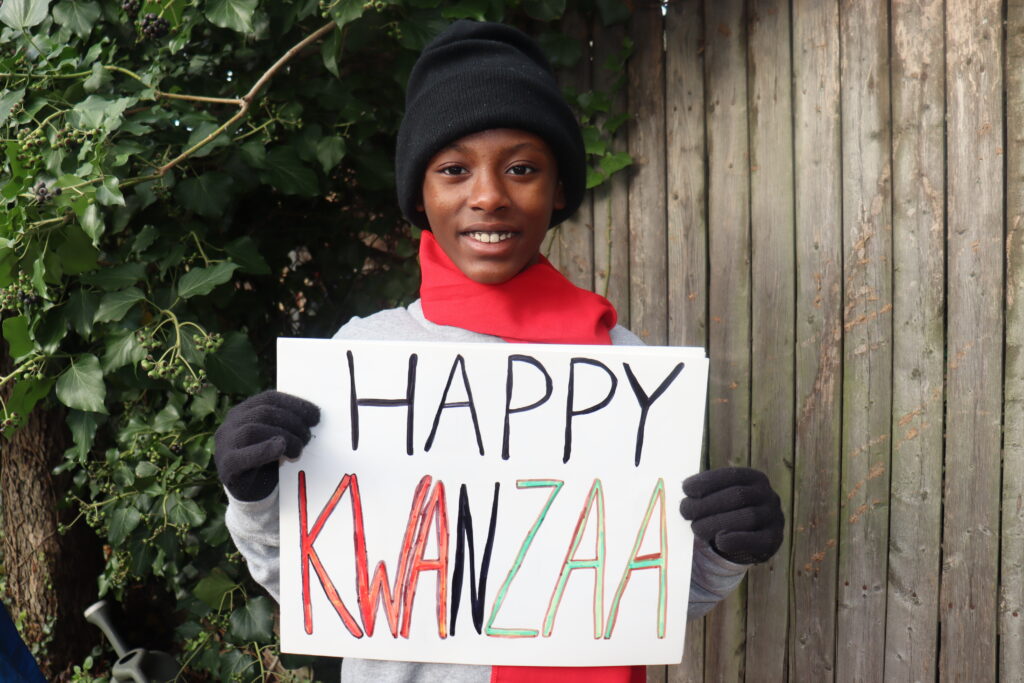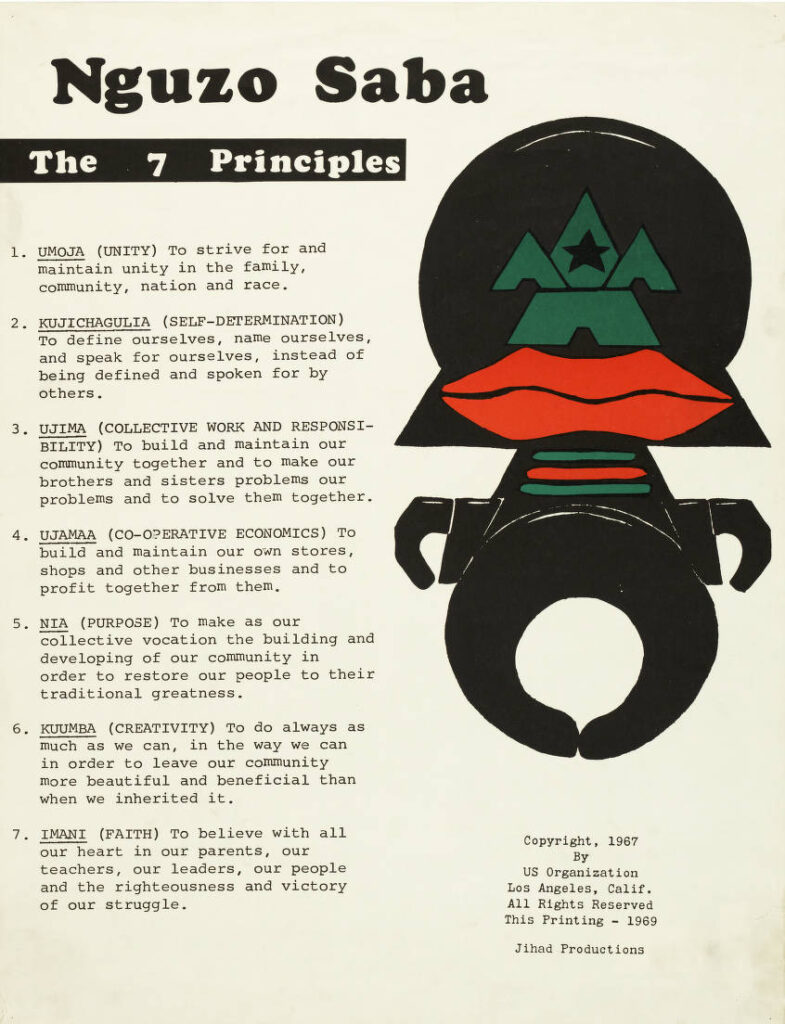Created in 1966 by Dr. Maulana Karenga, Kwanzaa begins on December 26th and ends on January 1st each year. Nevertheless, many people still do not know what it entails. In short, Kwanzaa is a secular holiday that celebrates African people worldwide, including those who live on the continent and those who are part of the diaspora. Kwanzaa recognizes their culture, hardships, joys, and the future they are building together. By analyzing tradition with the faculty of reason, specific practices have been selected and blended to constitute the holiday’s form today.
Kwanzaa finds its origins in Africa’s “first-fruits” celebrations, which were like harvest festivals and had roots thousands of years old. During the week of Kwanzaa, there is much emphasis placed on “ingathering” the community’s people, mirroring the act of people coming together to gather a harvest. Kwanzaa is like a homecoming, and like the first-fruits festivals, it is complemented by spiritual and ethical reverence, the expression of respect and appreciation for the Earth, actions that honor ancestors, a recommitment to cultural ideals, and celebration of all the good things in life.

In practice, this looks like a good deal of singing, dancing, eating, and exchanging artistic or educational gifts. Also included is the lighting of the Kinara’s seven candles. Fruits and crops decorate the house, symbolizing the community’s productivity, as do black, red, and green flags called “Bendera.”
The seven candles represent the seven principles of Kwanzaa, known as the Nguzo Saba. They are summarized in the image below:

Kwanzaa is an opportunity for the black community to celebrate themselves in a non-commercial and enriching way. We all must learn about it so that we give it the respect it deserves. Says Dr. Maulana Karenga, “This is our duty: to know our past and honor it; to engage our present and improve it; and to imagine a whole new future and forge it in the most ethical, effective and expansive ways.” Whether or not you identify as black, you can still support others who do by learning more; we recommend starting with the comprehensive information presented on its official website.
 Food
Food Farmers
Farmers Sustainable Living
Sustainable Living Living Planet
Living Planet News
News